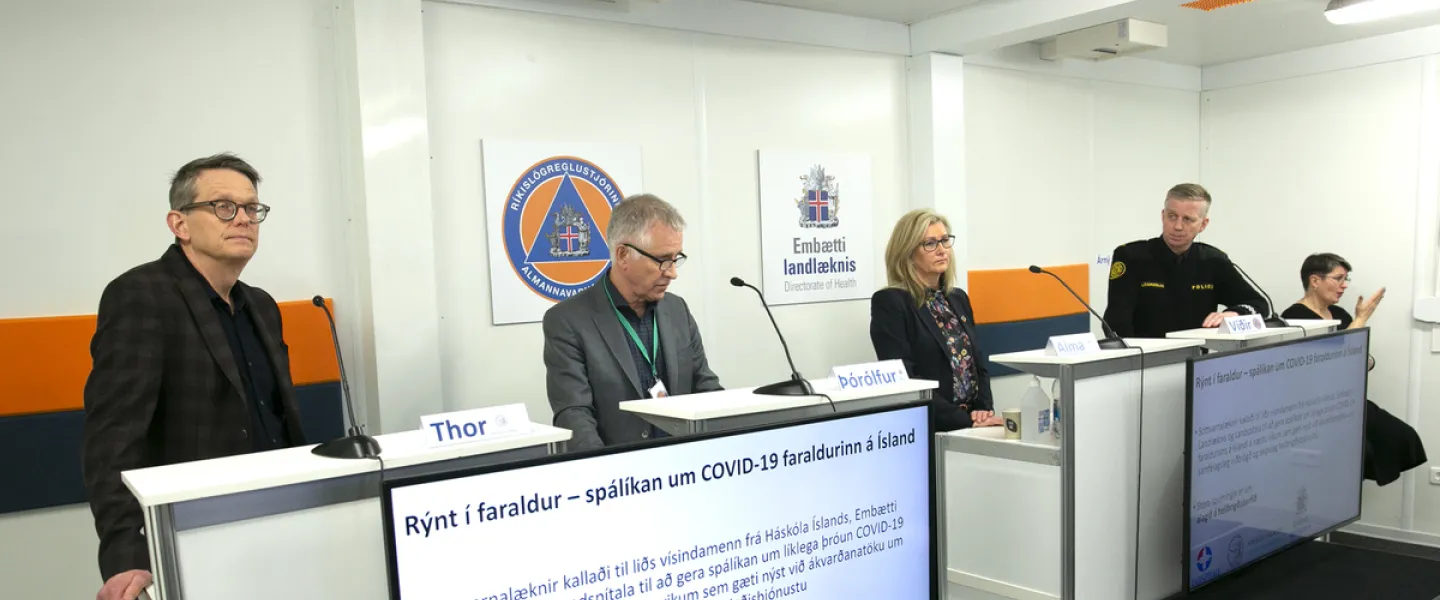
"At the beginning of the epidemic last spring it caught our attention that many countries seemed to be ill prepared for a pandemic such as COVID-19 and they reacted very differently. Countries that have a great deal in common, such as the Nordic countries, applied different methods to tackle this foe," says Baldur Þórhallsson, professor at the University of Iceland Faculty of Political Science, who is working with his domestic and international colleagues, as well as University students on a study on government reactions in Iceland, Norway, Sweden and Denmark to the Corona pandemic.
According to Baldur the research is mainly focused on the whether specialists or politicians steer the governmental policy in these countries. "It was evident right from the beginning of the epidemic that politicians were in charge in some countries regarding responses to it but in other specialists seemed to have the most influence in governmental policy making. We found this interesting and worth studying," he says and adds that the aim of the study is also to gain an insight into how diverse governance can influence strategic planning and how leaders and experts behave in crisis management.
Baldur leads the project with Asthildur Elva Bernharðsdóttir, an independent research scholar at ReykjavíkAkademían and sessional lecturer in crisis management at the Faculty of Political Science. Collaborators from the other three countries that are in the study also take part. These are Per Lægreid, professor emeritus from the University of Bergen, Fredrik Bynandier, associate professor and director of the Centre for Societal Security, and Hanne Foss Hansen, professor at the University of Copenhagen. In addition, three students at the University of Iceland worked on this project this summer, Hrafnkell Guðmundsson and Guðný Bára Jónsdóttir, master students in international politics, and Vívill Harðarson, undergraduate student in political science.



